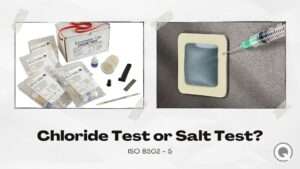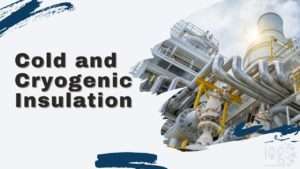For businesses in various sectors, ISO 9001 is essential, but it is especially crucial for the oil and gas industry, where accuracy and safety are of the highest significance.
It’s important to follow strict quality management practices for customer satisfaction and operational efficiency. Additionally, implementing ISO 9001 provides a strong framework for continuous improvement.
Exploring ISO 9001’s importance in the oil and gas industry, the IOGS offers the Project Quality Professional (PQP) certification course. This course opens doors for aspiring professionals in quality management.

Understanding ISO 9001 Quality Management System
The International Organization for Standardization (ISO) created the ISO 9001 standard. Moreover, it helps businesses improve quality management methods and ensures compliance with standards and regulations.
Additionally, the ISO 9001 Quality Management System emphasizes customer focus, leadership, and employee involvement.
It also promotes a process approach, continuous improvement, data-driven decision-making, and relationship management.
Consequently, ISO 9001 implementation streamlines operations, reduces risks, and encourages ongoing enhancements.
Importance of ISO 9001 in the Oil and Gas Industry
Operating in a complex and hazardous environment, the oil and gas sector cannot afford quality compromises. Consequently, ISO 9001 plays a vital role in establishing and maintaining effective quality management systems, ensuring safe and efficient operations.
Here are some reasons why ISO 9001 is of utmost importance in the industry:
Enhanced Safety
ISO 9001 promotes a proactive approach to safety by ensuring quality processes are in place to prevent accidents, minimize risks, and protect workers’ health.
Regulatory Compliance
Adhering to ISO 9001 enables oil and gas companies to comply with regulatory requirements. Additionally, it ensures adherence to environmental regulations, health and safety standards, and industry-specific guidelines.
Improved Operational Efficiency
The goals of ISO 9001 include process improvement, waste elimination, and productivity growth. Organizations may simplify their processes and improve overall efficiency by implementing standardized procedures.
Customer Satisfaction
ISO 9001 places a strong emphasis on meeting customer requirements and delivering consistent quality. Furthermore, by prioritizing customer satisfaction, companies can enhance their reputation and cultivate long-lasting client relationships.
Competitive Advantage
ISO 9001 certification showcases a company’s commitment to quality management, giving a competitive edge. Moreover, it serves as a guide for customers in partner selection, enhancing business prospects.
Introducing the Project Quality Professional (PQP) Certification Course:
In response to the growing need for skilled quality management specialists, IOGS introduces the Project Quality Professional (PQP) certification course.
Furthermore, this comprehensive program equips individuals with the essential skills to excel in various roles within the oil and gas industry’s quality management sector.
Key job positions for people who deal with the ISO 9001 QMS
QA QC Manager
As a QA QC Manager, your responsibility is to oversee the quality assurance and quality control processes. Moreover, you ensure that all projects and operations meet the required standards and regulations. Additionally, you provide leadership and guidance to the team to achieve quality objectives.
QA QC Inspector
In this role, your tasks include performing inspections, audits, and tests to verify compliance with quality standards and specifications. Additionally, your attention to detail and ability to identify non-conformities will greatly contribute to maintaining high-quality outcomes.
QA QC Supervisor
As a QA QC Supervisor, your role is to guide a team of qualified professionals. You provide direction, support, and training to ensure consistent adherence to quality management practices. Additionally, you foster a culture of continuous improvement within the team.
QA QC Engineer
QA QC Engineers play a vital role by designing and implementing quality control plans. They conduct risk assessments and collaborate with other engineering disciplines. Moreover, they ensure quality throughout the project lifecycle.
QA QC Technician
You’ll assist quality control by testing, collecting data, and analyzing results, improving the assurance process. Additionally, the PQP course offered by IOGS covers various topics such as ISO 9001 principles, risk management, and auditing techniques.
Moreover, it includes quality control tools and process improvement methodologies. By combining theoretical knowledge, practical exercises, and case studies, participants gain a deep understanding of quality management principles. Furthermore, they develop the skills required to excel in their quality management roles.
Enroll Today and Ignite Your Career in Quality Management!
Are you ready to advance your career in quality management in the oil and gas industry? Seize this opportunity to enhance your skills and expand job prospects.
At the Institute for Oil & Gas Sector (IOGS), enrolling in the Project Quality Professional (PQP) certification course is the ideal way to proactively unlock numerous possibilities.
By joining the PQP course, you will gain extensive knowledge of the ISO 9001 Quality Management System and its implementation in the oil and gas sector.
Moreover, the course curriculum is meticulously designed to provide a thorough grasp of quality management principles, tools, and techniques.
The PQP course is delivered online through the IOGS Learning Management System, providing you with the flexibility to study at your own pace and from anywhere in the world. The course content is accessible 24/7, allowing you to fit your learning around your existing commitments.
Throughout the course, you will have access to comprehensive learning materials, including video lectures, reading materials, and self-assessment quizzes. These resources will help you deepen your understanding of quality management concepts and prepare for the final certification exam.
While the course does not involve direct teacher interactions or practical exercises, it offers a self-paced learning experience that enables you to absorb the course content thoroughly.
Upon successful completion of the PQP course, you will receive a prestigious certification from IOGS, recognized by the oil and gas industry worldwide. This certification will validate your expertise in quality management and enhance your professional credibility.
To secure your spot in the PQP course, visit the IOGS website at https://www.iogs.org/project-quality-professional-certification. Don’t delay, as spaces are limited.
Take charge of your future and set yourself on the path to a successful and fulfilling career in quality management in the oil and gas industry.
Conclusion
The ISO 9001 Quality Management System ensures high-quality standards, operational effectiveness, and customer satisfaction.
Additionally, the PQP certification course from IOGS equips aspiring professionals with the skills needed for various industry roles.
Furthermore, with the increasing demand for qualified individuals in quality management, enrolling in the PQP course opens doors in the dynamic field of quality management in the oil and gas sector. For more information, visit IOGS’s website at https://www.iogs.org/project-quality-professional-certification.










